World Development

What are some examples of successful disability sports organizations or events around the world ?
Disability sports have been gaining popularity and recognition worldwide, with many organizations and events showcasing the talent and determination of athletes with disabilities. Here are some examples of successful disability sports organizations and events around the world: 1. Paralympic Games: An international multi-sport event for athletes with physical and intellectual disabilities, held immediately after the Olympic Games in the same host city. 2. Special Olympics World Games: A global event for athletes with intellectual disabilities, offering competition in various sports such as swimming, athletics, and basketball. 3. International Wheelchair Basketball Federation (IWBF): The governing body for wheelchair basketball worldwide, organizing international competitions and promoting the development of wheelchair basketball across different regions. 4. Cerebral Palsy Football World Cup: A biennial international football tournament for players with cerebral palsy, providing an opportunity for these athletes to showcase their skills and promote awareness about cerebral palsy. 5. International Blind Sports Association (IBSA): Dedicated to promoting sports for visually impaired athletes, organizing world championships and other events in various sports such as goalball, judo, and swimming. 6. World Deaf Volleyball Championships: An international competition for deaf volleyball players, promoting the development of deaf sports and providing a platform for deaf athletes to showcase their talent and compete at the highest level. 7. World Dwarf Games: A multi-sport event specifically designed for individuals with dwarfism, offering a range of sports such as swimming, track and field, and powerlifting, providing opportunities for athletes with dwarfism to compete and showcase their abilities.
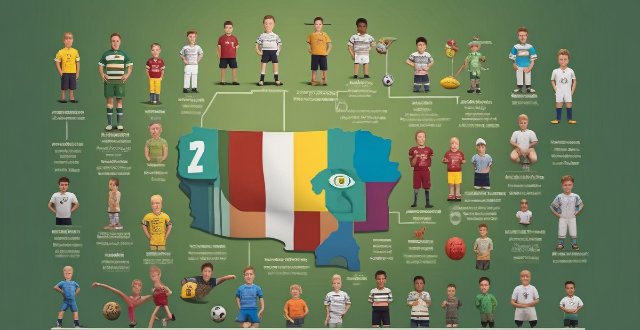
Which country has won the most FIFA World Cup titles ?
The country that has won the most FIFA World Cup titles is Brazil, with a total of five (5) titles. The Brazilian national football team is widely considered one of the most successful in the history of the sport. Other countries that have achieved significant success in the World Cup include Germany, Italy, Argentina, and Uruguay.

How can governments support the development and implementation of sustainable energy solutions ?
Governments can support sustainable energy solutions through clear policies, financial incentives, R&D, education, infrastructure development, international cooperation, market-based mechanisms, and demonstration projects.

Can you recommend some breathtaking yet less crowded hiking trails around the world ?
This guide recommends breathtaking yet less crowded hiking trails around the world, from the Sierra Nevada in California to the Himalayas in Nepal. It offers highlights and crowd avoidance tips for each trail.

What is the role of the World Health Organization (WHO) in promoting global health ?
The World Health Organization (WHO) plays a crucialThe World Health Organization (WHO) plays a crucial by providing leadership, setting norm WHO's work is focused on improving health outcomes worldwide through various activities such as convening stakeholders, establishing international standards for health, generating scientific knowledge to inform policy decisions, providing technical support to countries, and monitoring global health trends.

What role do parents play in the development of their adolescent children ?
Parents play a crucial role in the development of their adolescent children by providing emotional support, guidance and discipline, educational support, promoting healthy lifestyle habits, aiding in social development, and shaping moral and ethical values.
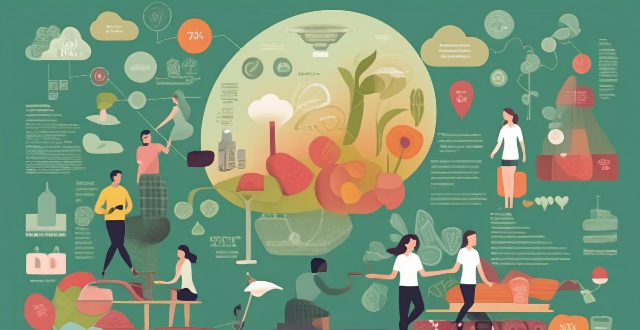
What is the relationship between climate action and sustainable development ?
Climate action and sustainable development are interconnected concepts that aim to create a healthier, more equitable, and prosperous world. They have mutual benefits, as taking action to address climate change can also promote sustainable development. An integrated approach that combines both concepts can lead to better outcomes, considering environmental, social, and economic aspects. Both require a long-term perspective, planning for the future while addressing immediate needs. Recognizing the importance of both concepts and working towards their integration is essential to create a more resilient and adaptable society.

What are the must-visit family-friendly attractions around the world ?
Traveling with family is an amazing experience that creates lasting memories. Here are some of the must-visit family-friendly attractions around the world: 1. Disneyland Paris, France 2. Universal Studios Hollywood, USA 3. Tokyo DisneySea, Japan 4. Legoland Deutschland, Germany 5. LEGOLAND Florida Resort, USA 6. Efteling, Netherlands

How has private investment impacted the development of space technology ?
Private investment has significantly impacted space technology development by increasing research and development funding, reducing costs, improving efficiency, and driving innovation. Private companies like SpaceX and Blue Origin have made advancements in reusable rockets, satellite communications, and lunar exploration. These investments have also enabled new business models and increased accessibility to space for smaller organizations.

How do climate policies influence renewable energy development and adoption ?
Climate policies play a crucial role in shaping the trajectory of renewable energy development and adoption. These policies are designed to mitigate the effects of climate change by reducing greenhouse gas emissions and promoting the use of clean energy sources. In this article, we will explore the various ways in which climate policies influence renewable energy development and adoption. Governments around the world have implemented a range of incentives and subsidies to encourage the development and adoption of renewable energy sources. These include feed-in tariffs, renewable portfolio standards, tax credits and exemptions, and research and development funding. Carbon pricing mechanisms, such as carbon taxes and cap-and-trade systems, are designed to put a price on carbon emissions. By making fossil fuels more expensive relative to renewable energy sources, these policies create an economic incentive for businesses and consumers to switch to cleaner energy alternatives. Governments also impose regulatory measures to promote renewable energy development and adoption. These include building codes and standards, energy efficiency standards, and renewable energy targets. Public awareness and education campaigns aim to increase public awareness about the benefits of renewable energy and encourage its adoption. These campaigns promote energy conservation, support local renewable energy projects, and raise awareness about the environmental and economic benefits of clean energy sources.

How can women overcome gender bias in the startup world ?
Gender bias is a pervasive issue in many industries, including the startup world. Women face unique challenges when it comes to funding, networking, and building their businesses. However, there are strategies that women can employ to overcome these obstacles and thrive in the startup world. Here are some tips: 1\. Build a Strong Network: Networking is crucial for any entrepreneur, but it's especially important for women who may not have as many natural connections in the industry. Attend industry events, join professional organizations, and connect with other entrepreneurs on social media. Make sure to diversify your network by seeking out people from different backgrounds and perspectives. 2\. Develop Your Skills: Take courses or attend workshops to develop your skills in areas such as finance, marketing, and management. This will not only make you a more well-rounded entrepreneur but also demonstrate your commitment to learning and growing. 3\. Be Confident and Assertive: Women are often socialized to be polite and deferential, which can sometimes hold them back in business settings. Practice being confident and assertive in meetings and negotiations. Remember that you deserve to be taken seriously and that your ideas and opinions are valuable. 4\. Seek Out Mentors and Advisors: Find mentors or advisors who can offer guidance and support as you navigate the startup world. Look for people who have experience in your industry and who share your values and goals. 5\. Leverage Your Strengths: Women often bring unique strengths to the table, such as empathy, collaboration, and creativity. Emphasize these qualities in your pitches and marketing materials, and don't be afraid to highlight how they set you apart from your competitors. 6\. Stay Persistent: Starting a business is hard work, and there will inevitably be setbacks along the way. Stay persistent and focused on your goals, even when faced with rejection or failure. Remember that every challenge is an opportunity to learn and grow. 7\. Advocate for Yourself and Others: Speak up about issues of gender bias and inequality whenever you see them. Use your platform to advocate for change within your industry and support other women who are facing similar challenges. By working together, we can create a more equitable and inclusive startup world for all entrepreneurs.
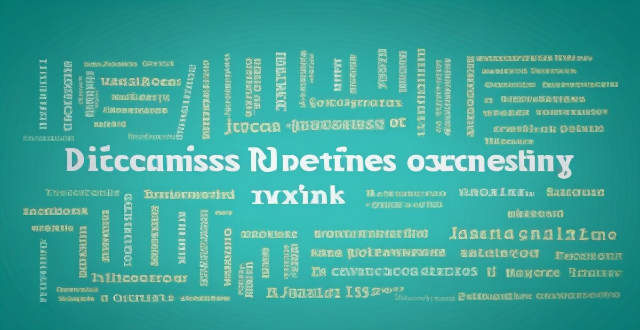
What are the latest developments in vaccine research and development ?
The text discusses the latest developments in vaccine research and development, including the creation of new vaccines for COVID-19, cancer, and other infectious diseases. It also highlights the challenges and opportunities facing vaccine researchers and developers, such as ensuring accessibility and affordability of vaccines and addressing concerns about vaccine safety and efficacy. The text concludes by emphasizing the importance of continued investment in vaccine research and development to improve global health outcomes.

How do climate change and sustainable development goals (SDGs) intersect ?
The intersection of climate change and sustainable development goals (SDGs) is crucial for creating a sustainable future. Climate change affects all aspects of sustainable development, from health and well-being to clean water and sanitation to affordable and clean energy. To effectively address climate change within the context of sustainable development, it is important to integrate climate actions into each SDG through strategies such as integrated planning, finance and investment priorities, and education and awareness campaigns. By doing so, we can work towards a more sustainable future for our planet.
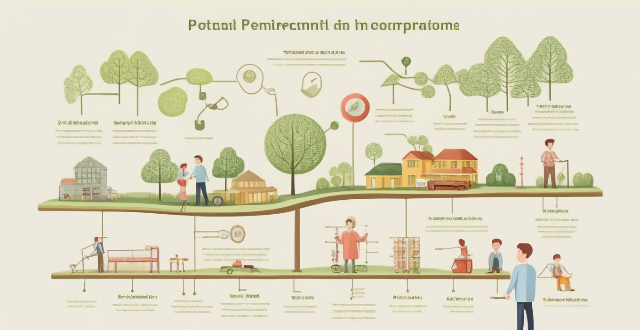
How does technology contribute to the growth and development of a multicultural society ?
Technology has played a pivotal role in the growth and development of multicultural societies. It has facilitated communication, understanding, and collaboration across diverse cultural backgrounds, leading to a more inclusive and interconnected world. The article explores how technology contributes to the growth and development of a multicultural society through enhanced communication, access to information, collaboration and partnership, and cultural preservation and promotion.
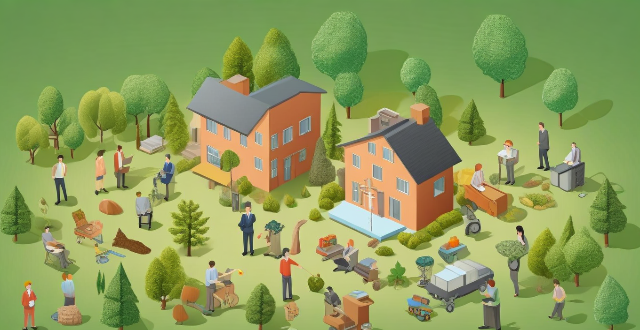
What is sustainable development and why is it important ?
Sustainable development is a concept that aims to meet the needs of the present without compromising future generations' ability to meet their own needs. It is crucial for addressing poverty, inequality, climate change, and environmental degradation. Sustainable development promotes economic growth, social inclusion, and environmental protection. It encourages renewable energy use, sustainable agriculture, and green technologies to create job opportunities and reduce unemployment. By ensuring access to basic services, it helps reduce poverty and improve living standards for all segments of society. Promoting gender equality is an integral part of sustainable development. It also focuses on reducing greenhouse gas emissions, adapting to climate change, conserving forests, protecting biodiversity and natural resources, controlling pollution, preventing conflicts over resources, aiding in post-conflict recovery, and reducing disaster risks. Sustainable development offers a framework for addressing complex global challenges while ensuring long-term ecological sustainability.

How does climate financing work to promote sustainable development ?
Climate financing plays a crucial role in promoting sustainable development by providing the necessary financial resources for projects and policies that aim to mitigate climate change and adapt to its impacts. It works through defining climate financing, identifying sources of climate finance, establishing mechanisms for climate finance, promoting sustainable development, and addressing challenges and considerations. Climate finance can come from various sources, including public and private sectors, international organizations, and even individual contributions. Several mechanisms have been established to channel climate finance effectively, such as the Green Climate Fund (GCF), Global Environment Facility (GEF), and Climate Investment Funds (CIF). Climate finance promotes sustainable development by funding projects that align with the United Nations Sustainable Development Goals (SDGs), particularly those related to clean energy, sustainable communities, and responsible consumption and production. Challenges such as ensuring adequate funding, maintaining transparency, and achieving equitable distribution of resources must be addressed. In conclusion, climate financing is an essential tool for driving sustainable development by supporting initiatives that combat climate change while promoting economic growth and social well-being.
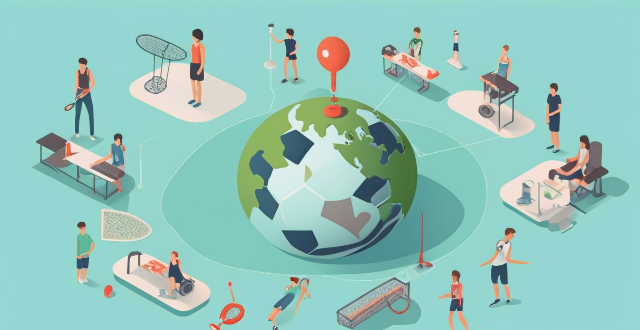
How does the globalization of sports impact player recruitment and talent development ?
The globalization of sports has led to increased competition in player recruitment, diversification of talent pools, and the adoption of advanced training methods. This includes exposure to international markets, cultural exchange, geographic broadening, demographic variety, technological integration, scientific approaches, language and communication adaptation, and education and life skills development.
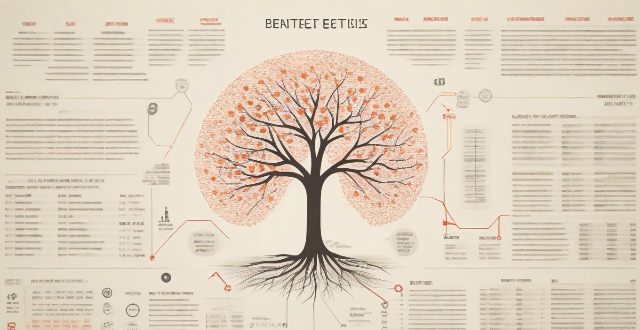
What are the benefits of extracurricular activities for teenage development ?
This article discusses the benefits of extracurricular activities for teenage development, including improved social skills, personal growth and self-discovery, academic success, physical health and well-being, and lifelong skills and habits.

Can sports be used as a tool for social change and community development ?
This text discusses the potential of sports as a tool for social change and community development. It highlights how sports can break down barriers, promote health and well-being, and contribute to education and personal development. The article also explores how sports can address social issues, empower communities economically, and promote peace and reconciliation. However, it emphasizes the need for equitable resource allocation, accessibility, and sustainability to fully realize the potential of sports in societal transformation.

How does social harmony impact economic development and stability ?
Social harmony is essential for economic development and stability, as it increases productivity, reduces conflict, improves governance, attracts foreign investment, and enhances social cohesion.

What are some examples of sports events that have promoted international peace ?
This article discusses the role of sports events in promoting international peace and understanding. It highlights the Olympic Games and the FIFA World Cup as two major sporting events that have brought together athletes from around the world to compete in a spirit of friendship, solidarity, and fair play. The article also mentions other events like the Peace and Sport Forum, the United Nations Office on Sport for Development and Peace (UNOSDP), and the Commonwealth Games, which serve as platforms for cultural exchange and diplomacy between participating countries. Overall, the article emphasizes the importance of using sport as a tool for promoting peace and building bridges between nations.

How does climate resilience relate to sustainable development ?
Climate resilience and sustainable development are interconnected concepts that aim to ensure the long-term well-being of our planet and its inhabitants. They share common goals, such as addressing global challenges like poverty, inequality, and environmental degradation by integrating short-term actions with long-term visions. Climate resilience refers to the ability of a system, community, or society to withstand and recover from the impacts of climate change, including extreme weather events such as hurricanes, floods, and droughts. It involves adapting to changing environmental conditions while maintaining essential functions and services. Key elements of climate resilience include adaptation, mitigation, preparedness, and recovery. Sustainable development is development that meets the needs of the present without compromising the ability of future generations to meet their own needs. It balances economic growth, social inclusion, and environmental protection for long-term prosperity. The three pillars of sustainable development are economic, social, and environmental. The intersection of climate resilience and sustainable development lies in their complementary goals, mutual benefits, integrated approaches, and policy coherence. Achieving climate resilience can support sustainable development by reducing vulnerabilities to climate change, which in turn can help maintain economic stability and protect livelihoods. Pursuing sustainable development can enhance climate resilience by promoting clean energy sources, efficient resource use, and robust ecosystems that can absorb the impacts of climate change. Integrating climate resilience into sustainable development strategies ensures that efforts to combat climate change are not isolated but rather part of a broader plan for sustainable living. This includes investing in renewable energy, building green infrastructure, and fostering sustainable agriculture practices. Governments and organizations must ensure policy coherence between climate action and sustainable development goals. By aligning policies, they can avoid conflicting objectives and maximize synergies between these two critical areas. In conclusion, climate resilience and sustainable development are not only compatible but also mutually reinforcing. Building resilience against climate change impacts is an integral part of achieving sustainability, just as pursuing sustainable pathways can strengthen our capacity to adapt and thrive in a changing climate. Together, they offer a comprehensive approach to securing a resilient and sustainable future for all.
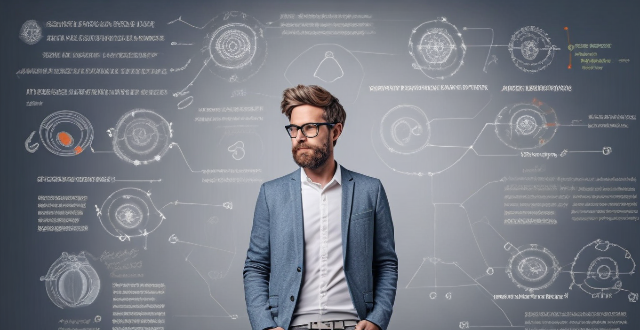
What is the importance of sleep in the development of teenagers ?
Sleep is crucial for teenagers' physical, mental, and emotional development. It aids growth, strengthens the immune system, and helps with weight management. Adequate sleep improves memory, cognitive function, and emotional regulation. It also reduces stress, enhances social interaction, and boosts self-esteem. Parents should encourage good sleep habits to support their teenagers' healthy development.

What role does waste reduction play in sustainable development ?
The article discusses the importance of waste reduction in sustainable development. It highlights the environmental, economic, and social benefits of waste reduction, including conservation of natural resources, protection of ecosystems, climate change mitigation, cost savings, job creation, innovation and efficiency, public health, education and awareness, and community engagement. The article emphasizes that waste reduction is an essential component of sustainable development and encourages individuals, businesses, and governments to take action to reduce waste.

How does resource-efficient utilization contribute to sustainable development ?
Resource-efficient utilization is key to sustainable development, conserving resources, reducing waste, and promoting economic growth. It helps mitigate environmental impact, provides economic benefits, and enhances social well-being. As we face global challenges like climate change and resource scarcity, adopting resource-efficient practices is crucial for a sustainable future.

Can playing multiple sports help in skill development ?
Participation in multiple sports can enhance overall athleticism and skill development by improving physical attributes, reducing injury risk, developing transferable skills, and promoting mental toughness. It also offers social benefits such as expanded networks and increased opportunities for exposure. While specialization has its advantages, playing multiple sports can help athletes become well-rounded competitors.